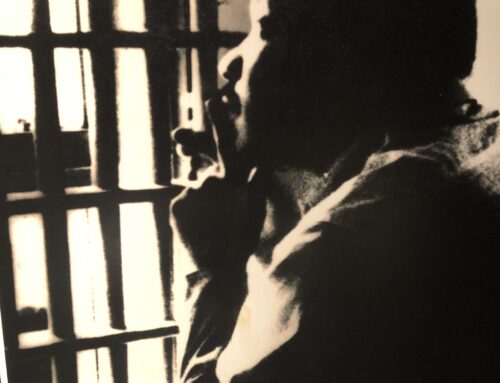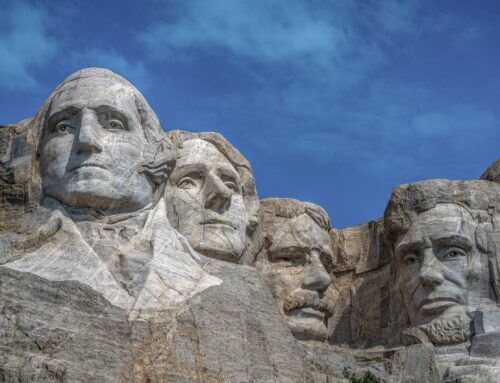Intimacy with Jesus brings both wonder and war. That Jesus would love us enough to bear the consequence of our sin is an amazing and wonderful reality. That Jesus would call us to take up our cross and follow him, however, creates a battle within us akin to the Great War. We do not lay aside our presuppositions, deny our preferences, or abandon our personal priorities without a fight.
Every relationship comes with this tension between wonder and war, but our relationship with Jesus is unique. Most relationships require mutual self-denial that allows both parties to meet in the middle, but that is not the case in our relationship with Jesus. Jesus does not need our grace. He has no sin to confess or shortcomings for us to overlook. He is loving and gracious toward us, but Jesus’ perfections bid us, and only us, to change in order to follow him.
[ctt template=”3″ link=”q5ckL” via=”yes” ]Jesus’ perfections bid us, and only us, to change in order to follow him.[/ctt]
The religious leaders of Jesus’ day were not accustomed to this kind of arrangement. They considered themselves and the laws they had created to be the ultimate standard of righteousness. Anyone who refused to obey not only the Law of Moses, but also the laws they had built around the Law of Moses, were put out of the synagogue and excluded from the community of faith. Their allegiance to their own code led them to view the diseased as despised, offenders as outcasts, and foreigners as foul. By building laws around God’s Law, they created a religious culture of exclusion that not only limited access to only a few but also insulated them from anyone who would threaten their political power.
But when Jesus arrived, he spoke as one having authority and then submitted to the Law of God rather than to the laws of men. Every miracle, every sermon, every act of kindness, and every declaration of forgiveness challenged the religious leaders’ view of true righteousness. When asked then what is the greatest of all the commandments, Jesus answered that loving God and loving neighbor summed up the entire Law. When asked who he considered to be a neighbor, Jesus told a story that made a Samaritan the hero when Jewish custom viewed no Samaritan as good, much less heroic.
Jesus, however, did not simply teach the law of love; he practiced it. He healed lepers, people considered unclean by the religious elite. He healed a blind man on the Sabbath, not to dishonor the day of worship and rest, but because the law of love compelled him to serve the vulnerable wherever and whenever he found them.
While Jesus welcomed the outcasts, he condemned the religious insiders by saying things like,
But woe to you Pharisees! You give a tenth of mint, rue, and every kind of herb, and you bypass justice and love for God. These things you should have done without neglecting the others.” –Luke 11:42
Tithing is important, but God takes no pleasure in our religious devotion when at the same time we neglect the law of love. Jesus even called the religious elites “white washed tombs”, well adorned on the outside, but dead on the inside. Jesus said he was the fulfillment of the Law, so these very personal and public challenges called the religious leaders to abandon their manufactured religious presuppositions and instead embrace Jesus’ eternal purpose, because that’s what it means to follow Jesus and join his kingdom mission.
[ctt template=”3″ link=”9SMiq” via=”yes” ]In Jesus’ kingdom, the outsiders, the oppressed, and the ostracized are welcomed.[/ctt]
In Jesus’ kingdom, the outsiders, the oppressed, and the ostracized are welcomed, while the religiously affiliated, politically powerful, and socially connected find themselves excluded from God’s activity. That’s not because Jesus will not save the religious, powerful, or connected, but because these people most often are either unaware they need salvation or unwilling to reject the societal structures that validate their own position of prominence. Ultimately, they refused to leave their kingdom behind in order to bow to King Jesus.
We see this as the Pharisees conspired against Jesus, bribed Judas, and colluded with the Roman authorities to arrest and try Jesus under the dark of night. At last, when Pilot questioned the rationale of crucifying their king, the chief priest played his hand and revealed his heart by responding, “We have no king but Caesar!” (John 19:15)
In that tragic moment, the leader of the religious establishment rejected the Messiah by pledging his allegiance to Caesar. This seems incomprehensible until we look back to the days after Jesus raised Lazarus from the dead. Because of that miracle, many people believed in Jesus, which made the chief priests and the Pharisees nervous. So they gathered the council and said,
What are we to do? For this man performs many signs. If we let him go on like this, everyone will believe in him, and the Romans will come and take away both our place and our nation. –John 11:48-49
While their priority was self-protection, Jesus’ priority was, and remains, self-sacrifice. Instead of using their power to serve, the religious elite used it to escape their responsibility to join Jesus’ kingdom work to “preach good news to the poor, proclaim release to the captives and recovery of sight to the blind, to set free the oppressed, and to proclaim the year of the Lord’s favor.” (Luke 4:18-19) They protected themselves and their place of power on the backs of the most vulnerable people around them.
The Gospel, however, never grows from the soil of self-protection. So as Jesus-loving, Bible-believing evangelicals consider the social challenges before us, we must consider to what structures we are most allegiant. We must ask if we have made idols of our own laws while neglecting the law of God. We must consider if we self-protect at the expense of those who need the most protection of all. We must wonder if our failure to see people saved and baptized and our churches experience Gospel impact in our communities has any connection with our failure to value the “least of these” that Jesus spoke of in Matthew 25. We must ask if Jesus were walking with us today, would he condemn or celebrate our faithfulness to his law of love.
[ctt template=”3″ link=”eIUd1″ via=”yes” ]The Gospel never grows from the soil of self-protection.[/ctt]
As I was sharing my interest in serving the marginalized in my community with a Christian leader whom I greatly respect, his first word was one of warning. His concern focused on the failures of the social gospel among mainline churches in America. That is a real and present danger, no doubt, but Jesus’ Gospel ministry included both words and deeds, both telling and showing the Good News. Affirming the inerrancy of the Bible while failing to obey it denies the power of the Gospel altogether.
It seems that when the topic of immigration comes up, for example, many evangelicals run to border security while taking a slow walk to champion human dignity. When it’s race relations, we sprint to “all lives matter,” while giving little thought of empathizing with the practical barriers that still exist for minorities in America. When the subject is poverty, education, or any of the tangible ills of the marginalized land at our doorstep, we quickly open our Bible to rail against entitlements, and totally dismiss passages like:
Isn’t this the fast I choose: To break the chains of wickedness, to untie the ropes of the yoke, to set the oppressed free, and to tear off every yoke? 7 Is it not to share your bread with the hungry, to bring the poor and homeless into your house, to clothe the naked when you see him, and not to ignore your own flesh and blood? 8 Then your light will appear like the dawn, and your recovery will come quickly. Your righteousness will go before you, and the Lord’s glory will be your rear guard. –Isaiah 58:6-8
Isaiah rightly defined righteousness by teaching that the fast God approves is our compassion for people who are hurting the most. The proof of our devotion is not our adherence to religious practices but our Christ-like love for the sufferers around us.
[ctt template=”3″ link=”4kmJc” via=”yes” ]The proof of our devotion is not our adherence to religious practices but our affection for the sufferers around us.[/ctt]
In Jenny Yang’s recent article, Why Christians Shouldn’t Be So Quick to Shut the Door on Refugees and Immigrants, she notes, among other facts, that the U.S. is on track to admit the fewest number of refugees since 1980. Obviously, we cannot admit everyone who wants to enter, but we can do better than this. Further, neither Congress nor the President have secured the legal status for 800,000 DACA recipients who came to our country with their undocumented parents years ago. Immigration issues are complicated, but action on DACA isn’t complicated at all. Yang also reminds us that children are being forcibly taken from their parents seeking asylum from strife-ridden countries like the Democratic Republic of Congo. These practices not only deny justice to people made in the image of God, but when these actions go unchallenged by the Christian community, our loyalties are exposed and our Gospel witness is muted.
So should we promote, pass, and enforce a common sense immigration policy? Should people take personal responsibility for their actions? Should every person regardless of background become contributors to the communities in which they live? Absolutely. But our best, and our only, pathway to the societal change we need the most is through Jesus’ law of love. That law demands abandoning our convenient tribalism to embrace Jesus’ Kingdom agenda, challenging social constructs of power to spend our influence on the powerless, and considering other people more important than ourselves by allocating our best resources for those facing the worst challenges.
We always find public policy downstream from culture, so it is individual Christians and local churches, empowered by the Holy Spirit and practically engaged in serving the needy, advocating for the powerless, and protecting the vulnerable who becomes the fount of “justice that flows like water, and righteousness, like an unfailing stream.” (Amos 5:24)
[ctt template=”3″ link=”RB2AJ” via=”yes” ]Our best, and our only, pathway to the societal change we need the most is through Jesus’ law of love. [/ctt]
The law of love never minimizes the Good News of Jesus Christ. Instead, love rooted in self-sacrifice rather than self-protection amplifies the Gospel so that it can be clearly heard and wholly embraced. It puts skin on the Gospel by mobilizing a kingdom of priests who actually stop along the Jericho road to help, heal, and give hope to those who know they need it.





